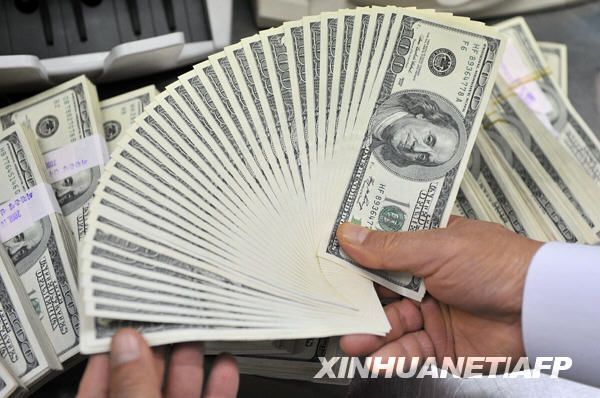Offshore financial assets expand 7% to $4.4t
 0 Comment(s)
0 Comment(s) Print
Print E-mail
China Daily, July 27, 2011
E-mail
China Daily, July 27, 2011
 |
|
China's foreign reserves, now the world's biggest, have surged in recent years, supported by long-term capital- and current-account surpluses. [Photo by Xinhua/AFP] |
China's offshore financial assets rose 7 percent in the year to March to $4.4 trillion, primarily propelled by rising foreign-exchange reserves.
According to the nation's balance sheet of foreign-exchange assets and liabilities, also known as the International Investment Position, offshore financial liabilities increased 5 percent to $2.5 trillion as of the end of March. That resulted in net assets of $1.9 trillion, according to a statement on the website of the State Administration of Foreign Exchange (SAFE) on Tuesday.
It was the first time that SAFE, manager of China's $3.2 trillion in foreign reserves, updated the figures on a quarterly basis. Previously, the balance sheet was only released annually.
"China's overseas financial assets and liabilities have increased constantly over the past few years, boosted by increased foreign-exchange reserves and overseas investment," said Lu Zhengwei, chief economist with Industrial Bank Co Ltd.
"It is a result of China's increased forays into international markets." The International Investment Position reflects a country's stock of financial assets and liabilities to outside nations. Combined with the balance of international payments, it shows a country's complete international trade and investment flows.
China's current-account surplus - the broadest measure of trade with the world - narrowed 21 percent to $28.8 billion in the first quarter, according to SAFE's revised figures published in May.
The capital-account surplus, which measures the net capital inflow, widened 41 percent from a year earlier to $86.1 billion during the same period.
Reserve assets, including foreign-exchange reserves, gold and special drawing rights, remained the biggest portion of the $4.4 trillion in financial assets, or 71 percent, unchanged from the end of 2010.
Reserve assets increased $201.4 billion in the first quarter, including $197.3 billion in foreign exchange reserves, to $3.1 trillion.
"Foreign-exchange reserves are still the main channel through which China's overseas financial assets increase," said Ding Zhijie, dean of the School of Banking and Finance at the Beijing-based University of International Business and Economics.
China's foreign reserves, now the world's biggest, have surged in recent years, supported by long-term capital- and current-account surpluses.
Ding added that judging from SAFE's figures, the country has done a good job in investing its foreign reserves in the first quarter.
Out of the $197.3-billion increase in foreign reserves in the first quarter, $138 billion was generated from net capital inflows, Ding said.






Go to Forum >>0 Comment(s)